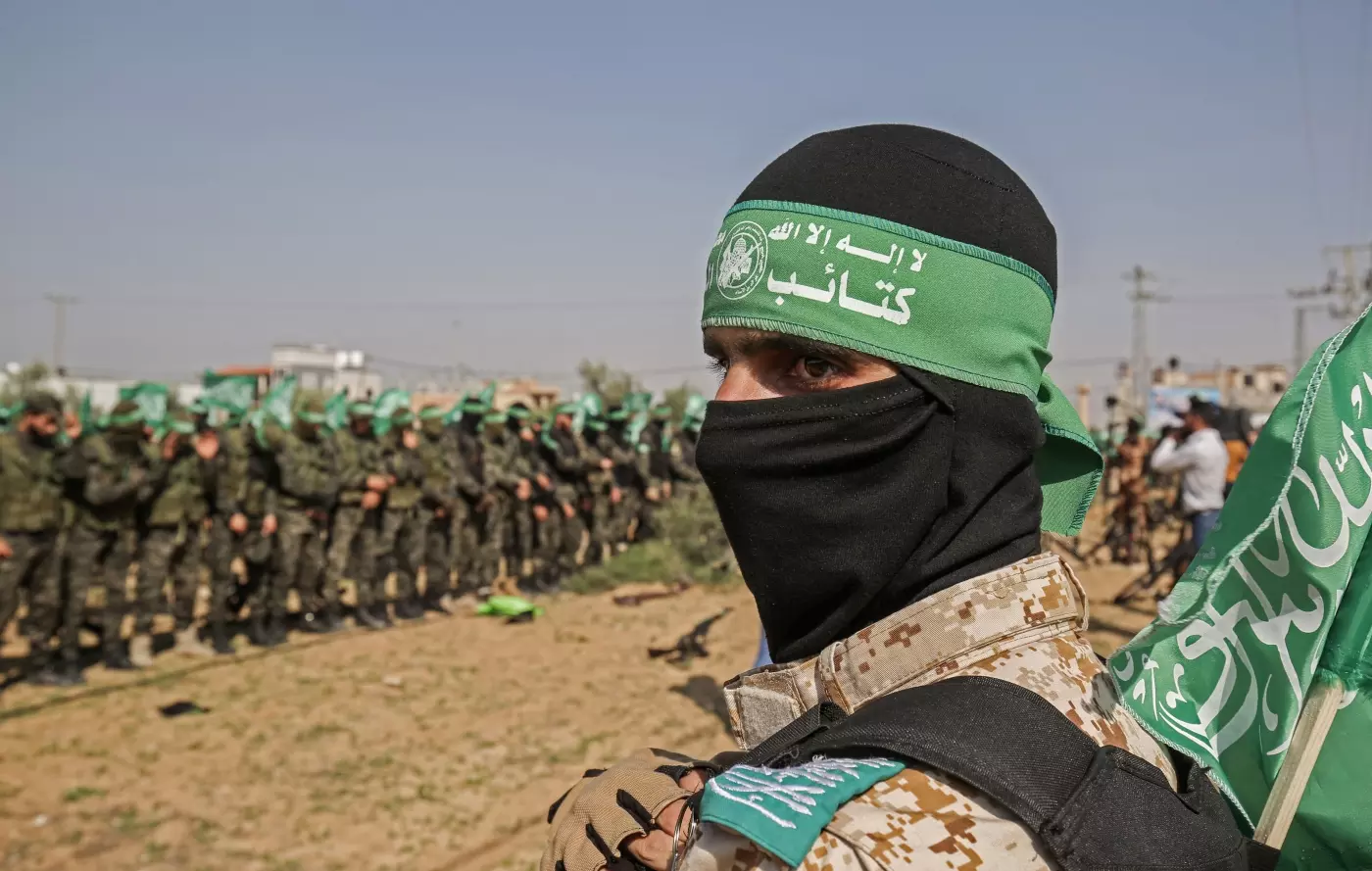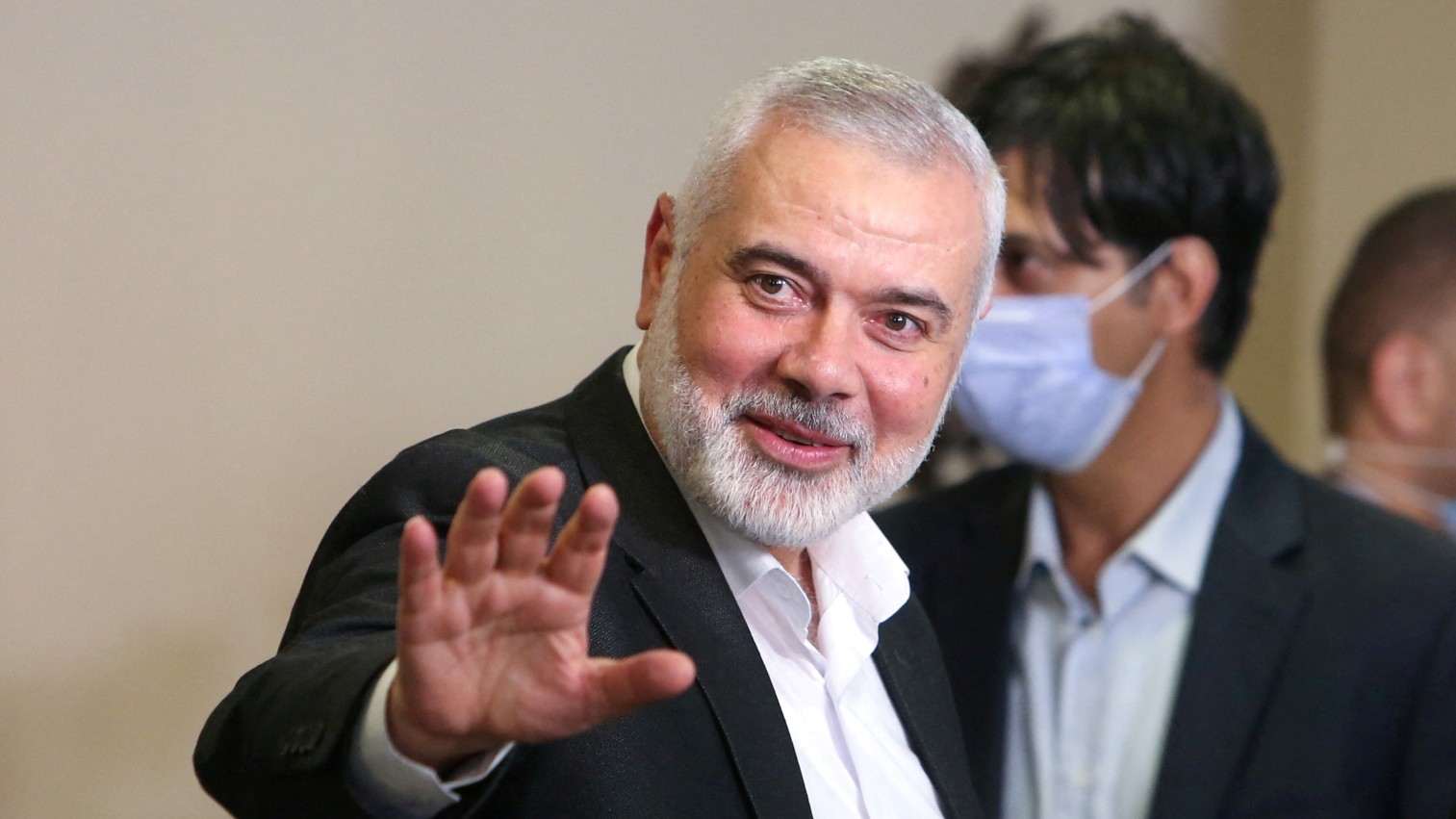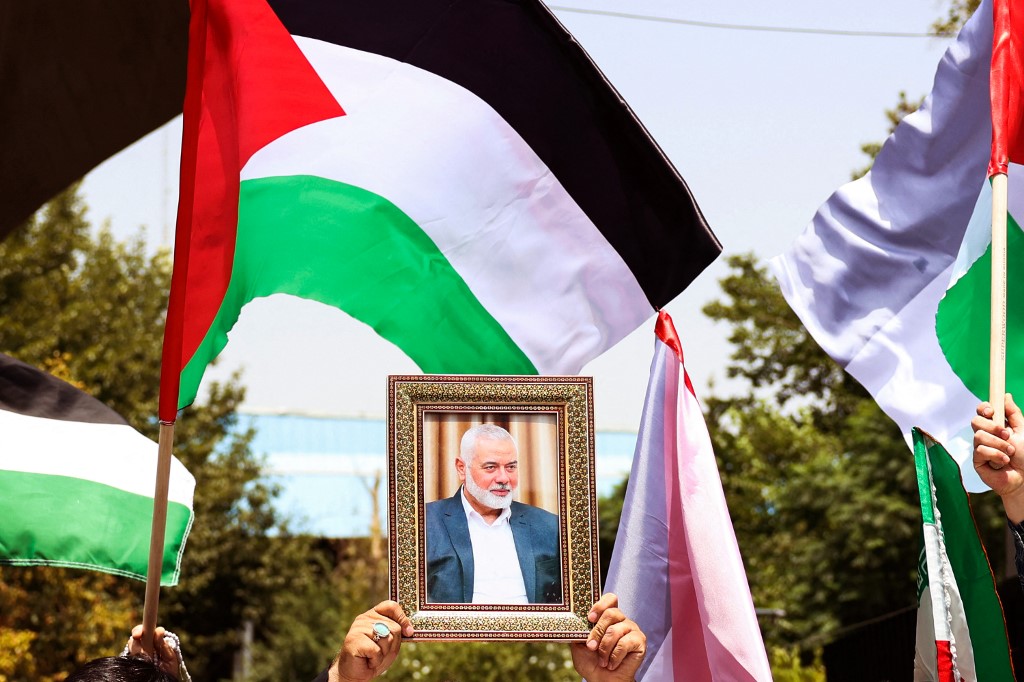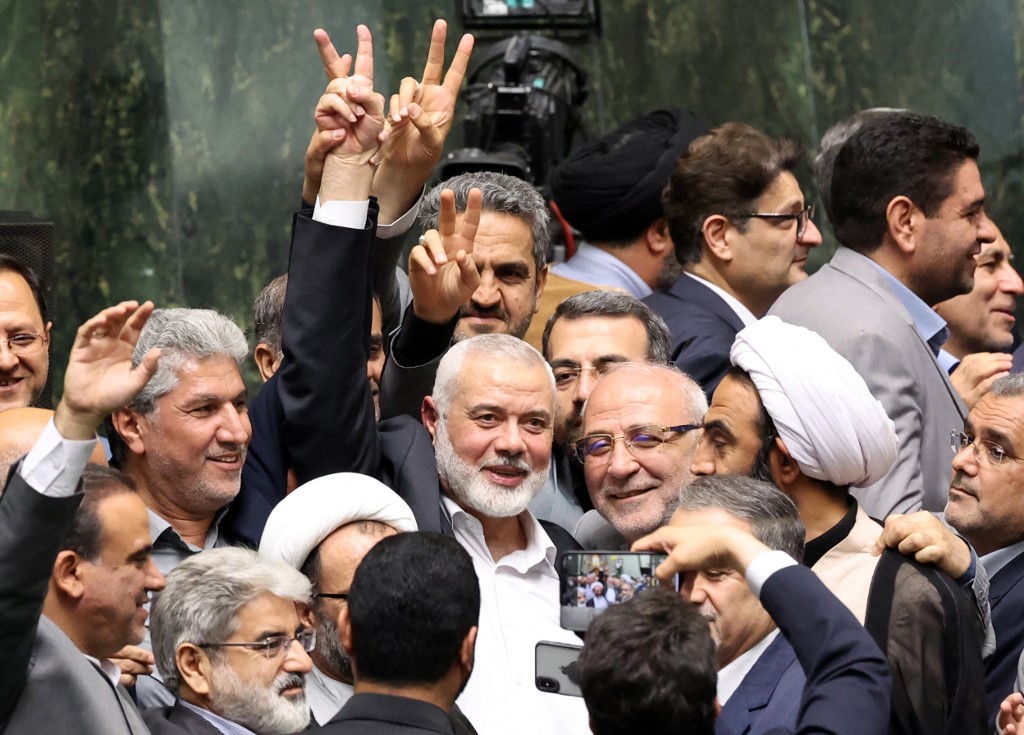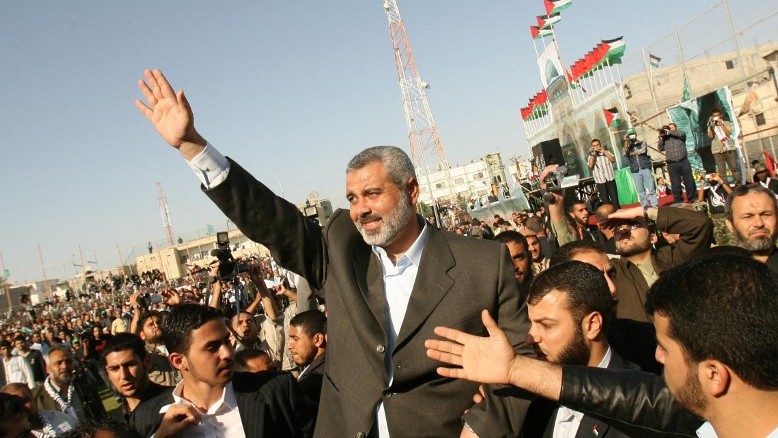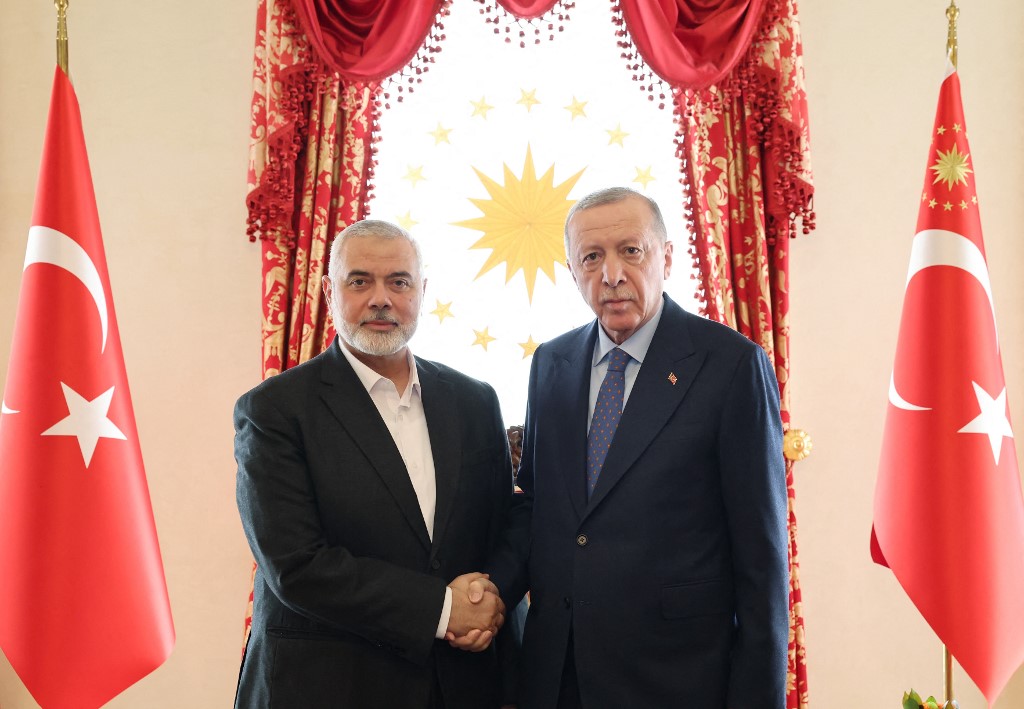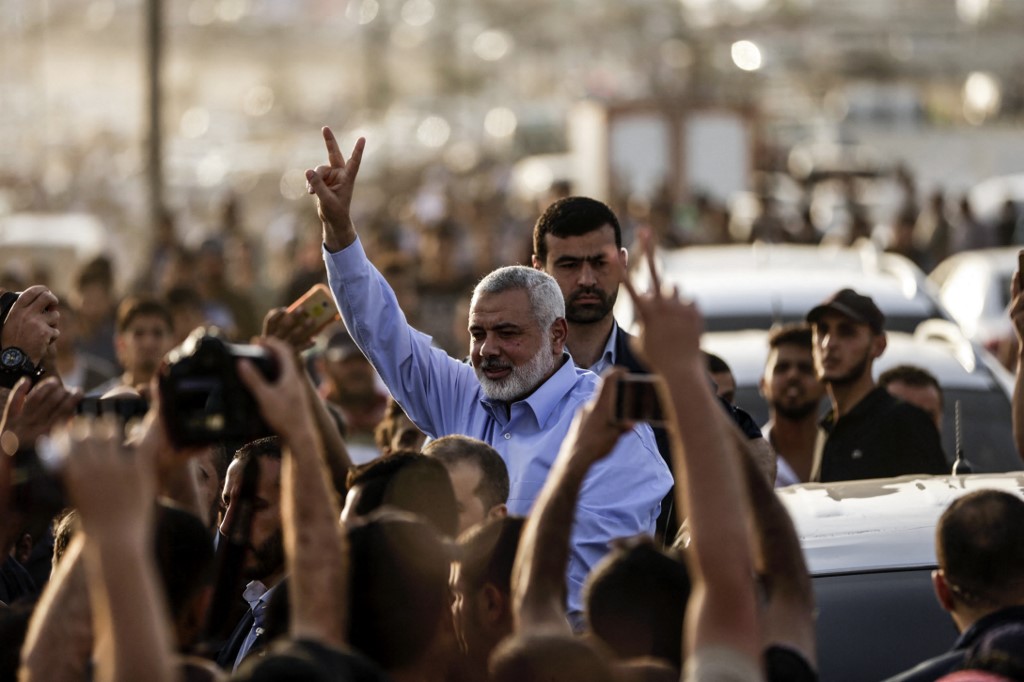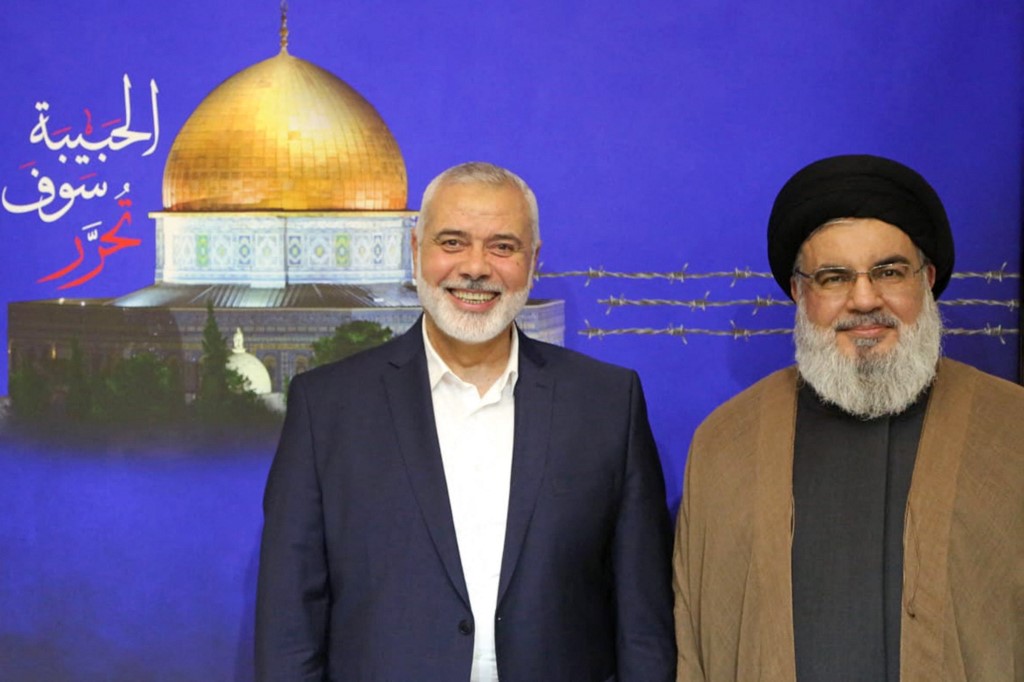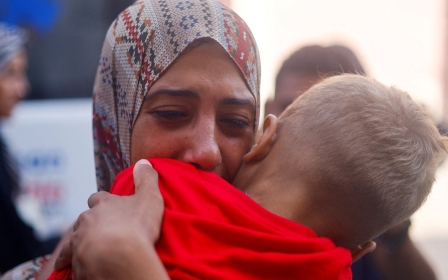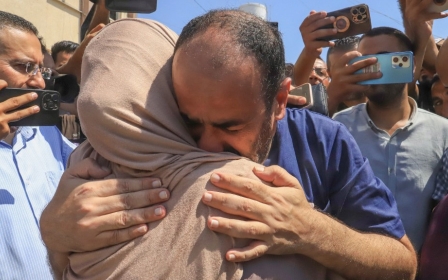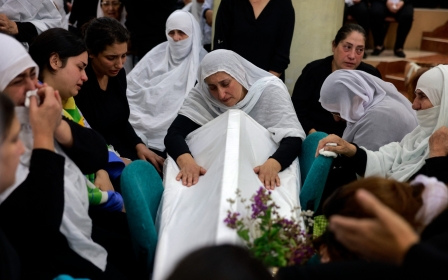Gaza live: Israel strike kills 30 Palestinians, mostly children
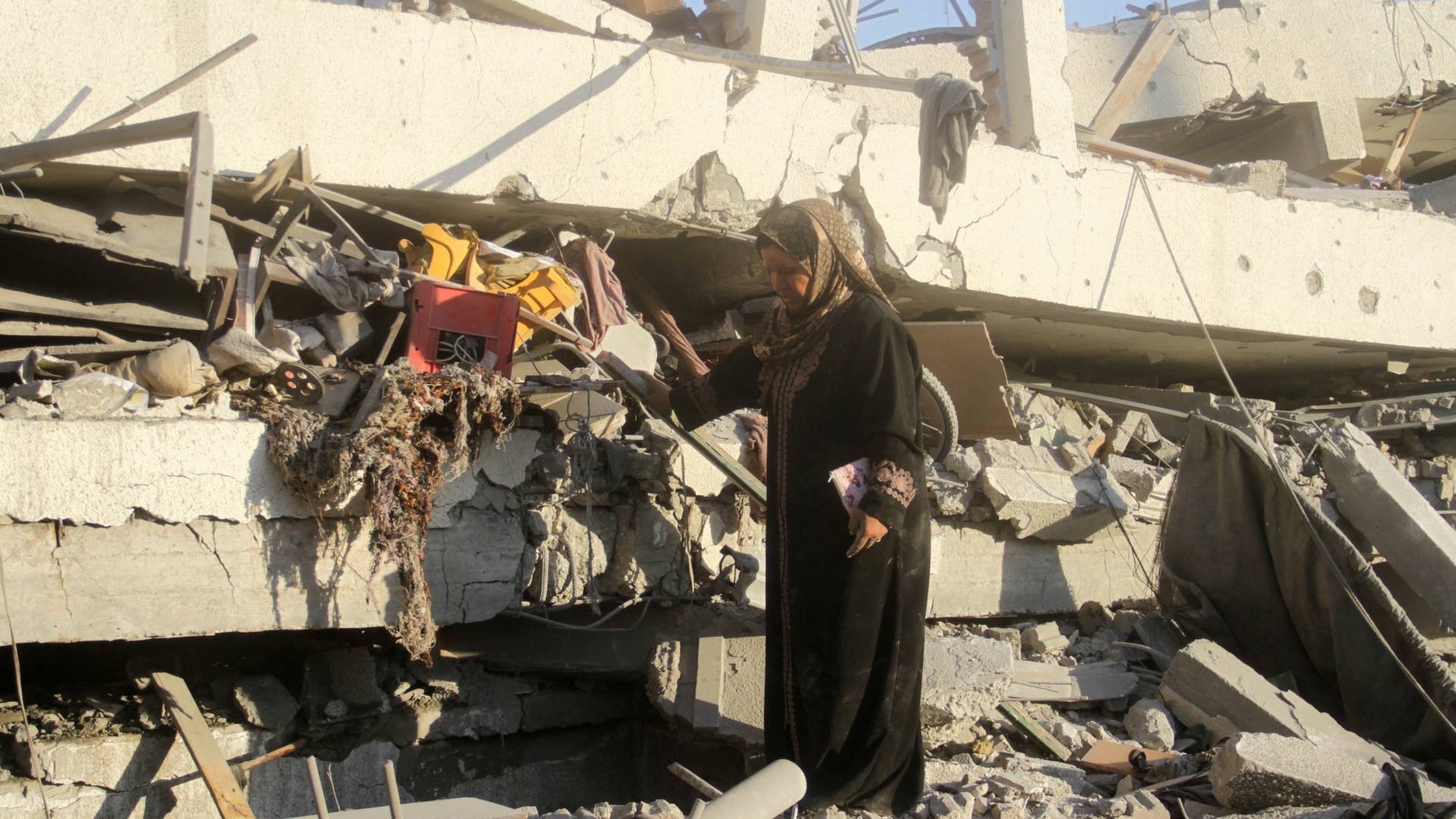
Live Updates
“Ismail was a determined journalist who refused to succumb to hunger, illness, and the loss of his brother. He relentlessly covered the events and delivered the reality of Gaza to the world through Al Jazeera”, Aljazeera’s Managing Editor Mohamed Moawad posted on X after the killing of Aljazeera journalist Ismail al-Ghoul.
"His voice has now been silenced, and there is no longer a need to call out to the world. Ismail fulfilled his mission to his people and his homeland. Shame on those who have failed the civilians, journalists, and humanity."
Ghoul and cameraman Ramy El Rify were killed in an Israeli strike on Gaza City this afternoon, bringing the number of killed Palestinian journalists since 7 October to 165.
It is with a heavy heart that we mourn the loss of our colleague journalist, Ismail Al-Ghoul, who was killed in an Israeli airstrike while courageously covering the events in northern Gaza. Ismail was renowned for his professionalism and dedication, bringing the world’s attention… pic.twitter.com/g9YInFpuz8
— Mohamed Moawad (@moawady) July 31, 2024
Al Jazeera is reporting that its journalist Ismail al-Ghoul and cameraman Ramy El Rify were killed in an Israeli strike on Gaza City.
Iran’s Supreme Leader Ayatollah Ali Khamenei will lead prayers over Ismail Haniyeh's body ahead of the funeral procession beginning at Tehran University on Thursday, according to Iranian Mehr news agency.
Following the procession, which will conclude at Azadi (Freedom) Square, Haniyeh's body will be flown to Doha for burial.
The UN Human Rights Office has published a report detailing "a range of appalling acts" perpetrated against the thousands of Palestinian detainees taken into custody by Israeli authorities since 7 October.
Detainees reported being attacked by dogs and subjected to waterboarding.
Some said they were held in cage-like facilities for prolonged periods, wearing only nappies. Others reported prolonged blindfolding, being denied food, sleep and water, as well as being tortured with electric shocks and cigarette burns.
The report said that most of those taken into custody in Gaza have been held in "prolonged secret and incommunicado detention" raising "serious concerns of enforced disappearance."
British foreign minister David Lammy and defence minister John Healey met with Qatari emir, Sheikh Tamim bin Hamad Al Thani in Doha to discuss efforts to end Israel's war on Gaza and call for for de-escalation in the wider region.
"It is absolutely vital that we engage closely with partners like Qatar, who play a key role in mediating the conflict in Gaza, so that we can bring this devastating war to an end," Lammy said in a statement.
Eran Etzion, former deputy head of Israel's national security council has said that the assassination of Hamas leader Ismail Haniyeh "serves as a strategy of killing the ceasefire deal."
Eztion told Middle East Eye that Israel could use the assassination to show it had achieved its political goals and conclude the war, but "that is not in Netanyahu's interest."
"Netanyahu wants a big war, Israel does not," he told MEE. "Netanyahu is one man but no one stands up to him. The defence establishment does but the other ministers are puppets."
Etzion added that Haniyeh's killing has increased the likelihood of a major war: "There will be an Iranian response. They cannot but respond. Will it degenerate into full scale war? I do not know," he said.
He also said that, despite Blinken's claims to contrary, the US likely had prior knowledge of the attack, citing the fact that the US carried out a strike themselves in Iraq coinciding with the Israeli attacks in Beirut and Lebanon.
He added that this could signal a shift in US policy, potentially due to tensions with Iran or new balances of power in Washington.
Israeli foreign minister, Israel Katz said on Wednesday that the "only way " to prevent "all out war" with Hezbollah is the immediate implementation of a UN resolution that bans armed factions in southern Lebanon from being near the frontier with Israel.
Katz said he had written to dozens of his counterparts calling for the implementation of UN resolution 1701.
The resolution stipulates that no armed factions should be present between Lebanon's Litani River and the border. The river is several kilometres (miles) from the border.
"Israel is not interested in an all-out war, but the only way to prevent it is the immediate implementation of Resolution 1701," Katz wrote in the letter.
German Foreign Minsiter Annalena Baerbock has called on all parties to "exercise maximum restraint and de-escalate in the interest of the people in the region," following the assassination of Hamas leader Ismail Haniyeh.
"The central issue now is to prevent a regional conflagration and not plunge the entire region into chaos," Baerbock said at a press conference.
Reporting by Reuters
Born out of the first uprising or 'Intifada' against Israel's occupation of Gaza and the West Bank, the Palestinian movement Hamas claims it's a freedom-fighting group trying to free Palestinians from Israeli subjugation.
The group, which was founded in December 1987 by Sheikh Ahmed Yassin, a Palestinian cleric who later became an activist, defines itself as a "Palestinian Islamic national liberation and resistance movement," using Islam as its frame of reference.
Originating as an offshoot of Egypt's Muslim Brotherhood, Hamas established its military wing, the Izz al-Din al-Qassam Brigades, to pursue the armed struggle against Israel with the aim of liberating historic Palestine.
But in 2017, the movement announced in its revised charter that it accepted the idea of a Palestinian state within the 1967 borders, without recognising the statehood of Israel.
In recent years, many of the group's high-ranking men have a kept a low public profile in Gaza, evading assassination attempts by Israel, whilst others affilated with the movement have opted to live in exile - mostly in Qatar, but also in Iran, Lebanon and Turkey.
Generally those residing in Gaza are belived to be more involved in military operations against Israel, whilst the political leadership is based abroad.
But who are Hamas' most prominent figures running the group in what has become the enclave's deadliest-ever war?
READ MORE: Hamas: Who are the group's key leaders after the killing of Ismail Haniyeh?
The director-general of the World Health Organisation (WHO) has said that "it is only a matter of time" before the thousands of children in Gaza are infected with polio.
“The detection of polio in Gaza is another reminder of the dire conditions the population is facing,” Tedros Adhanom Ghebreyesus wrote on X, adding that the continuing conflict impedes efforts to identify and respond to preventable diseases like polio.
The Gaza health ministry declared the territory a "polio epidemic zone" due to the discovery of the virus in wastewater and sewage samples, despite the disease being eradicated in Palestine years ago.
Polio is a highly infectious disease that can cause paralysis of the limbs.
Eight Palestinians have been killed in an Israeli air strike on the town of Az-Zawayda in the central Gaza Strip, Wafa news agency is reporting.
Iran said on Wednesday that the United States "bears responsibility" for the killing of Hamas leader, Ismail Haniyeh, due to its support for Israel.
The assassination of Hamas top leader Ismail Haniyeh on Wednesday will most likely be the boost Israeli Prime Minister Benjamin Netanyahu has been desperately looking for in this 10-month unprecedented genocidal war against the Palestinians.
Or this is how it might seem.
Hamas affiliates, and many Palestinians would agree with them, martyrdom is not a loss, neither for the victim nor for his movement and his loved ones. In the Islamic doctrine, martyrdom is one of two successful outcomes in the struggle for truth and justice; the other is victory.
When the Islamic Resistance Movement, Hamas, was born out of the womb of the Palestinian Muslim Brotherhood organisation in December 1987, Haniyeh was a young cadre, who was about to turn 25.
Yet, like many of his Islamic comrades, he was born a leader. Since his birth on 23 December 1962 to a refugee family that fled its homeland in Palestine, close to the city of Ashkelon during the Nakba of 1948, he grew up and lived in Al-Shati refugee camp in the north of the Gaza Strip.
Read more: Hamas will survive leader's death as it has many times before by Azzam Tamimi
The following photo is one of the last moments in which the Hamas leader was seen alive on Tuesday 30 July at the Iranian parliament.
Ismail Haniyeh, who served as the fourth Palestinian prime minister and the third political leader of Hamas, has died at the age of 62.
Hailing from a family of refugees expelled from historic Palestine during the Nakba in 1948, he grew up in northern Gaza's beachside al-Shati refugee camp.
He ascended through the ranks of Hamas, starting as the secretary to the group’s founder, Ahmed Yassin, and eventually leading its political bureau.
In 2006, Hamas won Palestine's most recent legislative elections, and as the movement's top candidate, Haniyeh was tasked with forming a new government, which he led for a year.


